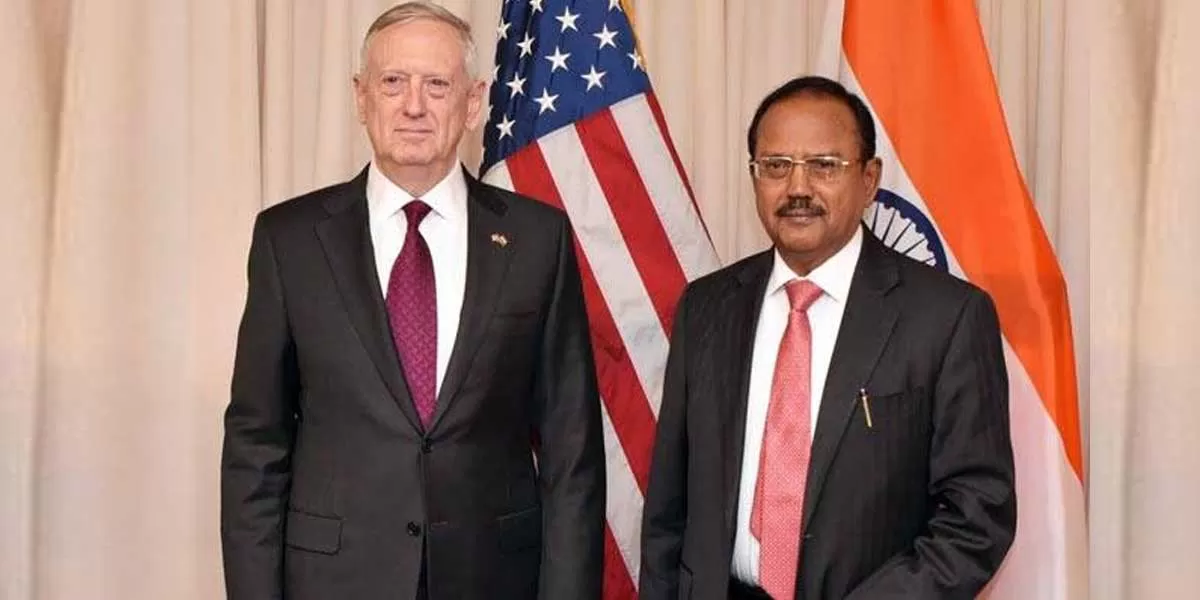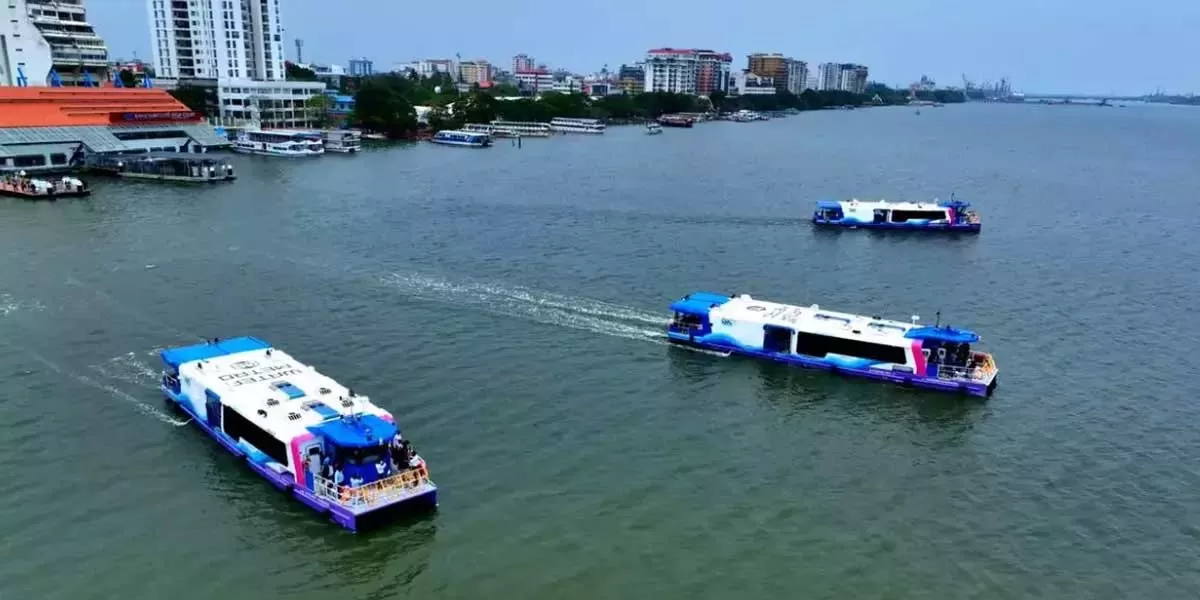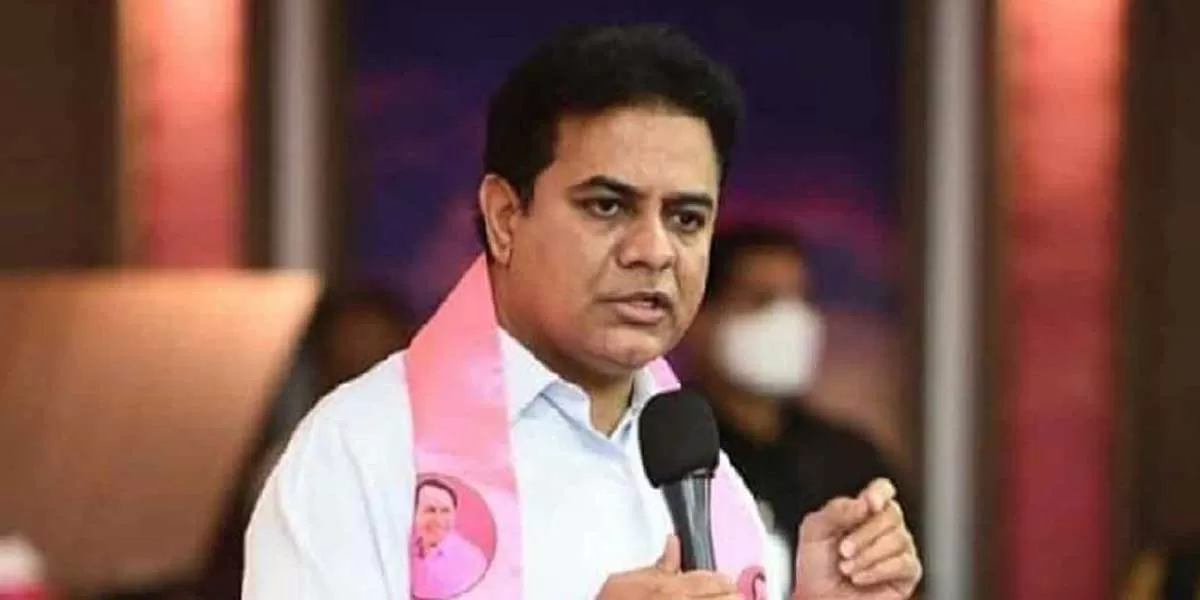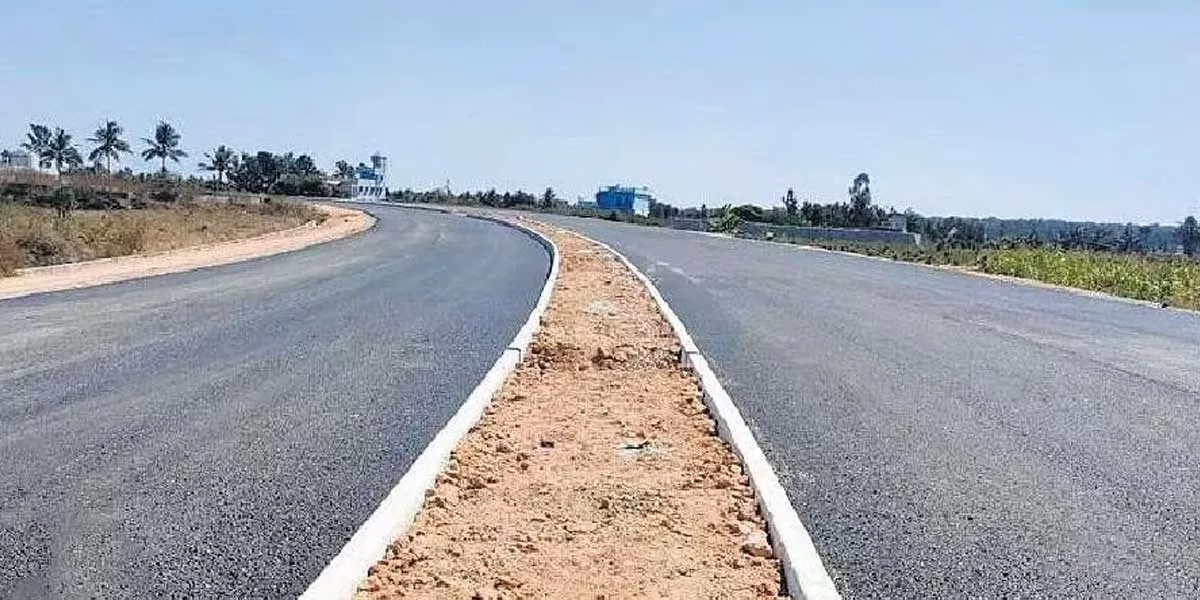
US and India must remain at forefront of tech: Ajit Doval

Kochi's Valanthakad Island to Get Bus Connectivity with Bridge Completion
Residents of Valanthakad, a tranquil island near Kochi, are celebrating the revival of a long-awaited bridge project connecting them to the mainland, with plans for bus connectivity now in the works. The new bus services are set to benefit Valanthakad’s nearly 15,000 residents, as well as the residents of Perumbalam, a nearby island, with enhanced public transportation options. The Tripunithura Sub Regional Transport Office (RTO) has proposed 21 new routes, including the 5km-long Tripunithura-Valanthakad Kadavu and 28km-long South Paravoor Jetty-Vaduthala Jetty-Perumbalam stretches. These r..

KTR Demands Cancellation of Rs.88 Billion AMRUT Tenders
Bharat Rashtra Samiti (BRS) working president KT Rama Rao has called for the cancellation of tenders worth Rs.88.88 billion, awarded under the AMRUT 2.0 scheme in Telangana. Addressing the media in New Delhi on Tuesday, Rama Rao accused the Congress-led Telangana government of engaging in "crony capitalism and corruption," raising concerns over the integrity of the tender process. The tenders, issued in February, include six packages, one of which is a Rs.11.37 billion contract awarded to a joint venture involving Indian Hume Pipe Company (IHP), Sodha Constructions, and AMR. According to KTR,..

Bengaluru-Chennai Expressway: 72km Karnataka Stretch Completed
The National Highways Authority of India (NHAI) has completed the 72-km stretch of the Bengaluru-Chennai Expressway that falls within Karnataka. The project, which faced delays due to local objections over the relocation of the Guddamma Temple at Jinnagara, has now moved past its final hurdle. After over two years of negotiations with villagers and the state government, NHAI successfully shifted the temple and constructed the remaining 500-meter section of the road. Despite the construction being completed, NHAI has yet to announce when motorists will be allowed to use the new road. The expres..













